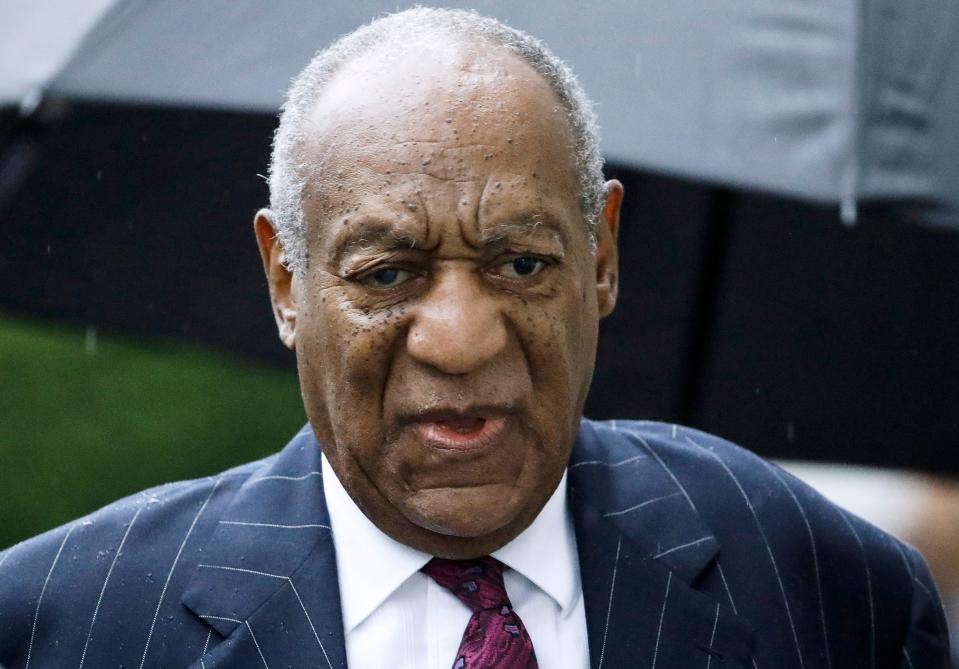Milwaukee County judge declines to dismiss 2021 homicide charges against man in infant daughter's 1991 death
- Oops!Something went wrong.Please try again later.
A judge ruled Wednesday a 30-year delay in filing homicide charges did not violate a defendant's due process rights, or break a past promise not to prosecute, distinguishing the case from comedian Bill Cosby's reversed conviction for sexual assault.
Ronald Schroeder, 52, who worked professionally as Silly the Clown, had long been a suspect in the death of his infant daughter in 1991 but wasn't charged until August. Earlier this year, his lawyers sought to have the case dismissed, citing the delay and a prosecutor's 1999 letter saying he would not charge Schroeder.
The defense motion noted that 17 witnesses, including a medical examiner and Schroeder's former attorneys, have died since 1991. It also argued Schroeder relied on the word Assistant District Attorney Jim Griffin.
Griffin wrote to Schroeder's attorney at the time, the late Robin Shellow, "On September 10, 1999, I indicated to you that I would not be charging Mr. Schroeder in the death of his daughter which occurred on August 25, 1991. This is still true. I have 'no processed' the case against him."
Current defense counsel Charles Glynn argued principles of contract and equity prevented the state from charging Schroder so long after he had relied on the letter.
Circuit Judge David Borowski rejected that argument. He wrote the routine "no process" letter does not amount to a promise to never prosecute Schroeder, and distinguished the case from that of Cosby.
The defense cited the comedian's case in support. A Pennsylvania prosecutor had very publicly announced in 2005 Cosby would not be prosecuted, meaning Cosby could not invoke his right against self-incrimination during a civil lawsuit over an alleged sexual assault.
Ten years later, and relying on information from civil cases, a successor prosecutor charged Cosby with sexual assault. He was convicted and imprisoned. The Pennsylvania Supreme Court later threw out the conviction based on the violation of Cosby's right against self-incrimination and due process.

The original prosecutor in the Cosby case testified his believed his decision not to prosecute was absolute and binding on the office, Borowski wrote, while Griffin has testified he never had that belief when he wrote the letter to Shellow in 1999.
The absence of any improper motive or purpose by Griffin, Borowski wrote, makes his letter far different from the original Pennsylvania prosecutor's decision, which was made with the intent that it would expose Cosby to making incriminating statements in civil court.
Nor did Schroeder incriminate himself in a civil case in reliance on Griffin's letter, Borowski found. Lastly, he noted the Pennsylvania case is not controlling in Wisconsin.
As to the dead witnesses, Borowski found Schroeder had failed to identify, "the substance and relevance of each witness’s testimony in concrete terms." Schroeder also "merely speculates that his previous attorneys’ files would rebut evidence the State may present," again without a showing of what the files — long destroyed — would have revealed.
Schroeder was investigated in 1991 in his daughter's death. He also was investigated over the suspected abuse of a girlfriend's son in 1998 and of another daughter in 2005.
In 2008, he was convicted of sexually assaulting a girlfriend and taking numerous nude photos of her while she was sleeping or unconscious, and sentenced to six years in prison.
The 2021 complaint over Catherine Schroeder's death in 1991 does not reveal any newly discovered evidence. It only asserts that on June 30, 2021, Milwaukee County Medical Examiner Brian Peterson reviewed Catherine's autopsy and concluded she died of blunt force trauma and determined the manner of death was homicide.
Schroeder was also charged in August with three counts of child abuse from 2005, in Waukesha County. The same Milwaukee prosecutor, Deputy District Attorney Matthew Torbenson, is handling that case.
He faces a count of first-degree reckless homicide in Catherine's death. He is being held at the Milwaukee County Jail on $350,000 bail.
This article originally appeared on Milwaukee Journal Sentinel: Milwaukee judge won't dismiss 2021 charges in infant's 1991 death

